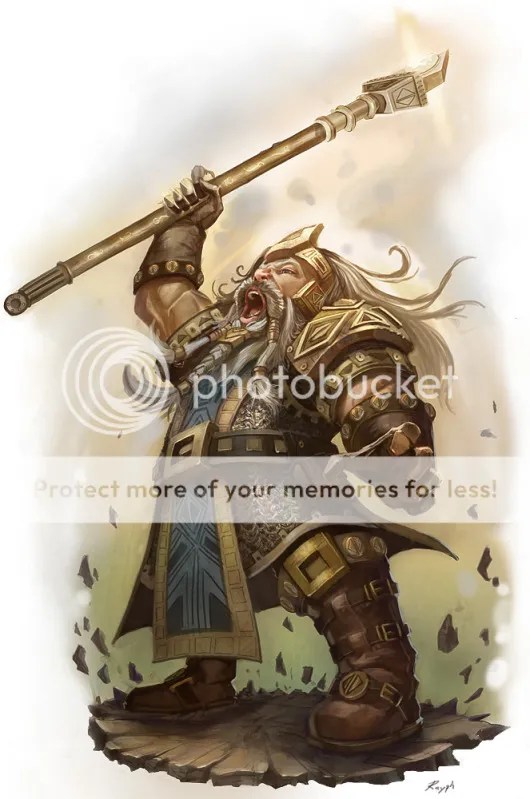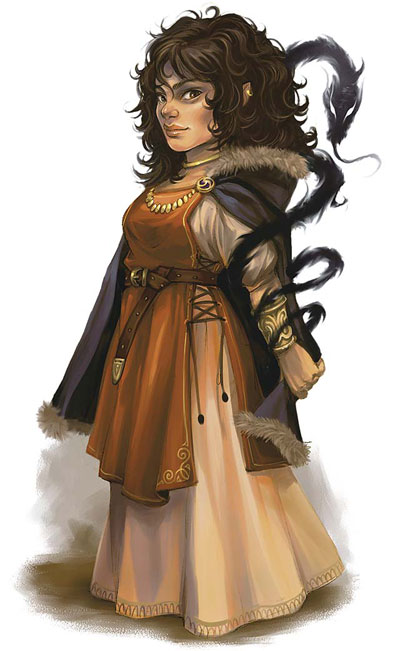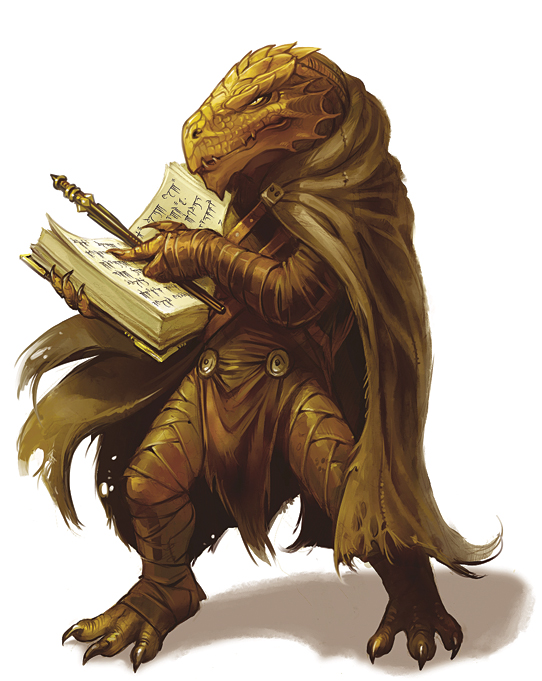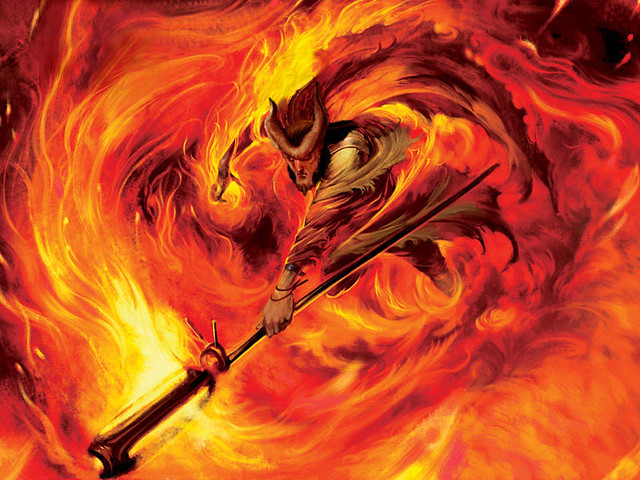Since I started the blog because of one special statement, that brought my eyes rolling, I think it’s fair to make one concrete post about it. The statement was: “The mountain dwarf is the best race for a wizard”. The main-reason is the fact, that mountain dwarfs gets proficiency with light and medium armor and dwarfs generally are good with +2 CON and the Dwarven Resilience (Advantages on Poison saves, Resistance to poison damage).
My first thought: How retarded. My second thought: Who would actually think that. Then I saw the ones, who actually took it seriously and I started to think about it. So now we get to look into, which race makes the best wizards!
First of all: We go with the standard ability scores with 15, 14, 13, 12, 10, 8 since it’s hard to cover up all possibilities of rolled ability scores or those bought by point-buy. Even though I don’t really address this, this is the fundamental idea to which I’ll draw conclusions.
Then we go for a more classy type of wizard, who mainly uses his spells and tries to stay alive. No multiclassing, no consideration for feats outside this build, etc.
Dwarf: Dwarves aren’t the archetypical choice for arcane magic, if you look into the literature. But if we use the game-mechanics they do have some benefits, one of the many reasons why dwarf wizards were a common choice in 3e. But let’s look into the dwarves in 5e:

- Abilities: +2 Constitution means more hit points and more chances of survival and helps to maintain concentration spells.
- Speed: Actually a minus is the lesser speed. Even though dwarves don’t suffer a speed penalty by wearing heavy armor without the needed STR, being below average in speed can make the typical ‘stay as far back as possible’ much harder.
- Darkvision: If you can see your target, you can spell it.
- Dwarfen Resilience: Since the wizard don’t get Constitution Saves as proficiency, Advantages vs. Poison is pretty helpful and any Resistance is always welcome, even though Poison shouldn’t come as often at places, were the wizard should be, as other damage types.
- Dwarfen Combat Training: A wizard shouldn’t ever get the need to use one of those weapons.
- Tool Proficiency: Grants nothing for a wizard.
- Stonecunning: In fact, the wizard benefits this trait, since its main ability is Intelligence. Doesn’t work the other way around.
- Hill Dwarf Subrace: +1 to Wisdom to raise your already good Wisdom Saves and one hit point per level, to make you even tougher.
- Mountain Dwarf Subrace: +2 Strength for nothing alone and the proficiency with light and medium armor and since you can cast spells while wearing any armor which you’re proficient with, it’s adding up.
The dwarf makes a tough wizard, especially the Mountain Dwarf, since higher AC means less hits. It trumps Mage Armor and as long you’re not neglecting DEX your AC is among the highest of the wizards. You’re one feat away from heavy armor and won’t get a speed penalty even with STR 10 (even though the optional encumbrance rule might still kick in).
But the conclusion is: The dwarf don’t make someone a better wizard, but is able to soften its weak spots, like the toughness of tofu, the ability to be always hit without magical defensive mechanism and to cover up . It needs 3 ability improvements to hit max INT (or 2 improvements and a viable feat) and even though it’s not that much, the difference when you hit the max might be a consideration worth.
Elf: Elves are often the iconic wizards in D&D and normally you should think, that the Elven wizard should be able to hold itself quite good. But since Elves weren’t a popular choice in 3e or 4e (where Eladrin, a more fairy kind of the high elf, got the magical background):

- Abilities: +2 Dexterity, more AC and better DEX-Saves, which are pretty common. And higher initiative, wizards love to act first, before the enemy had a chance to spread out to not get fireballed.
- Darkvision: On brightest day, in blackest night; no evil shall escape my might!
- Keen Senses: Getting proficiency in Perception doesn’t necessarily sounds like a direct addition to the wizard’s career. But since this might make the difference between surprised and ready to act, we should add it. Especially as the squishy back-row character.
- Fey Ancestry: Falls into the pros of being a wizard, since most charm saves rely on Wisdom, which a wizard is proficient with.
- Trance: Just 4 hours to be ready again? As the class, which relies on flexibility and using the right spell at the right time, which makes it necessarily to rest as often as possible? Sold!
- High Elf Subrace: +1 Intelligence does make you a better wizard, weapon training with a longbow can come in handy, if you want to act more stealthy and at farther range (even though others do better), Extra Language is ignorable for the game mechanic, but an additional cantrip is great. Since you can’t change your cantrips and those can strengthen your versatility, one of the wizard’s main traits, it makes a nice addition, if you choose your cantrips wisely.
- Wood Elf Subrace: +1 Wisdom is useable for other traits depending on it, more speed is great, since it means you’ll cover up more and be quicker than the usual humanoid, if you’re using the battle grit, you’ll see the difference clearly. Mask of the Wild is very dependent on the campaign and DM: How much weather will fall into account, how often you’re outdoors, etc. This means this trait can be a real boon, since not being seen is one of the best ways to survive, or a useless pile of words. Weapon Training same as High Elf.
- Dark Elf Subrace: +1 Charisma can be practical for an Enchanter, but won’t fall into it otherwise. Superior Darkvision and Sunlight Sensitivity makes you more useful in dungeons and night, while broad daylight will make you choose spells without attacking roll. The weapon training will not be as useful, since the hand crossbow lacks the range, but Drow Magic are like additional spells per day. If you use those 3 spells in the right way, they’re valuable as hell!
The Elf won’t address the wizards weaknesses greatly, but adds to his strengths and goals. A bit of better initiative here, a bit of good Perception there, less chances to be put to sleep or be charmed, less hours to be fully rested, those little niches are pretty stable.
If we go for an archetypical High Elf, we get some solid traits like better INT (means INT 20 at 8th level), more quickly higher chances of successes for spells, and an additional cantrip of choice. The other subraces aren’t really behind, Drow Magic might even make a better wizard due more spells, but since the spells are partly situational, it’s not as dependable.
Halfling: Halflings were never meant to be great wizards, but since they’re all roguish and stuff, but suffered in some points here and there in different editions to be a more effective rogues than other races. Like carrying capacity, since to be a Rogue you should better know how to carry your loot!!!

- Abilities: +2 Dexterity, again: More AC, better DEX-save, more initiative.
- Small: Less height doesn’t mean less arcane power, just more places to hide behind.
- Speed: Only 25ft means you’ll have trouble to outrun the common humanoid. I really liked the fact, that halflings had 30ft in 4e.
- Lucky: The fact that you can reroll any natural 1 once is great. It means that about every 20th spell with an attack roll will have another chance to hit and that might mean that you won’t waste a spell slot. In 3e it would be so much stronger, with touch attacks and stupid bonuses you could stack until you only miss at a natural 1 in the first place, but we’re through this!
- Brave: Anything that can save you from not being able to cast a spell is good, but frightened condition isn’t as common as other conditions.
- Halfling Nimbleness: This means that if you’re cornered, you can leave this predicament with as less attacks or opportunity and Speed as possible, but won’t necessary save you, since it’ll be hard to outrun the enemies.
- Lightfoot Subrace: +1 Charisma for a single Enchanter trait won’t really fall into it, being able to hide behind your medium sized friends will be your best friend at the start of a battle, since that means you don’t need an actual hiding spot for it. And of course if you’ve to worry about a flurry of arrows, maybe it is not a bad idea to hide behind someone else instead casting a spell.
- Stout Subrace: +1 Con and Stout Resilience which is basically Dwarven Resilience will lean your build a bit toward a minimum more tough wizard, but they’re not as useful as playing a dwarf in the first place.
Even though it’s nice to have some of these abilities, you won’t play a halfling wizard because of those, since it’s simply less power than other races could give you. But it might be good to play a haflfing for fluff reasons, but not for its prowess.
Of course as an Arcane Trickster, you can still uses those niche-traits for wizards, while being an actual Rogue, which can use more of some traits.
Humans: Humans are the most archetypical wizards, since studying obscure arts for more power and personal ambitions is pretty human. Since humans are meant to be versatile, they should be able to get at least decent at any class, so let’s see if it’s true for the wizard:

- Abilities: +1 on everything, this might get you a lot or nothing. At least you get the INT-boost and even DEX and CON might profit from it.
- Variant: If you’re able to choose the variant, you can get +1 to 2 ability scores, another skill proficiency of your choice and a feat. Neat!
While the common human won’t make bad wizards (or anything else in that regard), the variant will make great wizards, reasons: Take +1 on INT, +1 on DEX/CON, proficiency on something you’d either suck or where good becomes great and finally one of the many feats that will either grant you another ability score +bonus (like Resilient for DEX, you get +1 on one ability score and proficiency on the chosen ability’s save; or maybe Lightly Armored for +1 STR/DEX and light armor proficiency to at least go a bit in the armored wizard direction) or go to one of the magic enhancement feats, like Elemental Adept or Spell Sniper.
The human variant is more powerful in terms of customizing, since it grants the benefit of one feat, which means that you can actually weight in in about any class and the wizard is no exception. The normal human isn’t too bad either, but won’t bring any other benefits but the ability scores, which would come in handy, if you’re rolling or point buying your abilities.
Dragonborn: Dragonborn were never meant to be wizards, never got anything which would help a wizard career and it’s probable, that it stayed that way.

- Abilities: +2 Strength, +1 Charisma, only one Enchanter Trait can benefit from it and no other ability will really make use of more Strength
- Breath Weapon: If you wouldn’t play a wizard, it’d be more awesome. Even though it’s like a weaker attack spell which you can sling once after every short rest, your real non-cantrip spells outweigh the Breath Weapon most of the times.
- Damage Resistance: Having Resistance vs. your favorite element is a nice thing to have fluff-wise.
Dragonborns were simply never meant to be wizards. You won’t neither get more wizardly power nor defusing your weaknesses with a Dragonborn.
Gnome: Where Dragonborns were never good wizards, gnomes were always somehow promoted as skilled Illusionists. Means that we should expect some real synergy with the wizard class.

- Abilities: +2 Intelligence… Head-start!
- Small: Sometimes in dungeons are spots, where a medium character won’t fit, a small character can. Best places to cast spells from! Except against anything as small as you.
- Speed: 25ft, so another ‘have problems to get away’-type.
- Darkvision: If you’re in the dark, you’ll see enough to brightens things up with a Wall of Fire.
- Gnome Cunning: About every spell that can take your actions away, you get an Advantage on the saving throw. Since magic is the most common way to influence PCs and monsters, this trait is simply great.
- Forest Gnome Subrace: +1 DEX, the benefits were already told, Minor Illusion as a cantrip isn’t a bad thing, while Speak with Beasts won’t generally hurt, even though it doesn’t make you a better wizard.
- Rock Gnome Subrace: +1 CON, again an already told benefit, Artificer’s Lore helps you in terms of being the all-knowing wizard about magical items, alchemy and mechanic and tinker is a slightly costly way to not learn some basic cantrips, like ghost sound.
As expected, gnomes make great wizards. Not only the +2 INT, since that advantage is only a head-start and won’t last that long, if other races uses their ability score increase for Intelligence and +1 INT is almost as good in the long run, but you get one of the most common secondary attributes for wizards (‘don’t hit me’ and ‘I can take it’) is pretty decent, too. Gnome Cunning will be a great way to getting out of those spells, which will hinder your ability to cast spells (especially since the wizard has a lot of counter for them), even though you’ll have to fear CON-saves and all the effects bounded to them, like petrification.
Both subraces are good choices in their own way, even though I’d go with the forest gnome out of personal preferences.
Half-Elf: Half-Elves startet as a slightly more elven human, versatile in its own way, especially with multiclassing options, even though they couldn’t choose all classes before 3e. In 3,5e they got a bunch of more social traits and in 4e they were a whole race in its own, now in 5e they hold the trend:

- Abilities: +2 Charisma, +1 to two ability scores of your choice. While Charisma is kinda ignorable for a wizard (save the Enchanter option), the 2 +1s are a solid start for any class.
- Darkvision: As always, if you can see your target in the dark, you can turn it into stone. Like an elf.
- Fey Ancestry: Advantageous saves for some minor but really disturbing effects, just like an elf.
- Skill Versatility: More skills are never bad, but still more like a nice foundation for a wizard, not an actual necessity.
The actual problem here is the fact, that you can get almost everything wizard-related as an actual elf plus more. The elf simply outshines the half-elf as a wizard in terms of traits.
Half-Orc: Another Race which shouldn’t make great wizards in theory, but while the Dragonborn responded to those prejudices, the Dwarf didn’t. Maybe the Half-Orc is a surprisingly good wizard as well?

- Abilities: +2 Strength, +1 Constitution. CON makes you tougher and being tougher can help.
- Darkvision: I can see you!
- Menacing: Since Intimidation can avoid conflicts, it’s not bad. But most time it won’t do any wizard related stuff.
- Relentless Endurance: This is interesting. Once between long rests you get a good chance to stay at 1 hit point, instead of being downed. You can actually get a chance to make a retreat, if you have messed up the timing or got surprised. Neat.
- Savage Attacks: Since it only works with melee weapon attacks, it’s a wasted trait for wizards.
Under the line, Half-Orcs are only slightly better than Dragonborns, even the Relentless Endurance can’t save it.
Tiefling: Tieflings were always an unusual wizard choice fluff-wise, but a stable one rule-wise, since in most incarnations they get an Intelligence bonus and have some traits, which were useful enough for a wizard career. But fluff-wise they were always more rogues or later warlocks, dipping into the dark arts.

- Abilities: +2 Charisma (almost ignorable again), +1 Intelligence which actually helps.
- Darkvision: And again. And again. And again!
- Hellish Resistance: If you’re worrying about damage spells, fire is one of the most common damage types, so resistance won’t hurt.
- Infernal Legeacy: Some ‘spells’ again, Thaumaturgy as a replacement or addition to Prestidigitation, Hellish Rebuke will come in handy to actually use your reaction outside the Shield spell and Darkness can stir things up. Not the worst choice.
Tieflings are again a stable, but far from a best choice. They’re simply not as good as other races in terms of pure wizardly power, but can hold themselves with a bit of additional magic. In 4e I played a tiefling wizard and I wouldn’t mind to play one again in 5e.
But now back to the question, which one is the best? First of all: Anything is relative, many things comes from the party build (like if there are enough melees to ensure a back-row), the DM style (how often he attacks the wizard and especially before (s)he cast a spell; intelligent humanoids might think that he’s a merchant, politician or other stuff which wouldn’t wear armor, as long he doesn’t look the part) or the amount of dungeon dwelling in the campaign. So I narrowed it down to how I handle games as a DM and for a more typical choice and the fundamental question, which makes the best wizard, not the best optimized character, which happens to be a wizard. And of course my personal preferences.
1st would be the Gnome, either subrace. When playing a wizard nothing annoys me more than not being able to cast spells and under the line more INT, another practical cantrip(ish trait) and a bonus to one of the physical secondary abilities are just a big boost. 2nd would be High Elves, since they get a lot of bonuses like a gnome, strengthening the wizard’s sweet spots. 3rd would be the human variant, which can be individualizes the best.
Now some might think: Why could you ignore the (Mountain) Dwarf, even though you promoted his prowess? Because it’s just like I said: A strong character which happens to be a wizard. Survivability is great, but every character can make use of it. Wearing medium armor from the start and getting access to heavy at 4th level is sweet, too, not spending a spell slot for Mage Armor, but as long you’re smart enough to minimize enemies attacks and your DM is not targeting you especially, you should be able to survive most things and those which will kill you, won’t stop at AC. And Bracers of Defense are still out there. So the 1-2 points of additional AC might come not as handy as some additional wizard prowess, like getting your Spell DC fast as high as possible.
I won’t stop anyone to play dwarven wizards, because in some campaigns and settings the toughness will pay off. But D&D 5e isn’t such a shallow system as 3e and 4e made us believe they are. Even those systems weren’t shallow, but they invited a lot of players into power gaming, spending hours to figure out how to squeeze the tiniest bit of additional bonuses out of the system and as a DM you had to take a hard course too steer that boat right or just give up.
Since the basics of 5e are more restrictive in some places (like stacking bonuses, spells per day, benefits of multiclassing) and less restrictive in others (like combat rules), the whole balance got shifted. Since it became so hard to get your AC over 20, AC is less of a concern than hit points and being able to avoid attacks or combats entirely. Since the saves became more spread out (even though most remained at CON, DEX and WIS), any dumped ability will start to hurt at some point. If the fighter got Plane Shifted outside the battlefield, he might think that dumping Charisma wasn’t that great of an idea.
I think I’ll write another post about the shifted balance and how the restrictions will changes the way of playing soon, but for now, I’ll conclude this one with a quote, I got from a forum for another game, which is an actual tabletop strategy game:
Nothing in this game is essential, unless you are a power-gaming & unimaginative lemming who follows everyone else, without having any form of creativity or original thought rolling around your brainpain…
Thank you for your outlook and insight into the workings of a Wizard and in assisting me to determine what race would probably not fit my play style.
LikeLiked by 1 person
[…] Gnome […]
LikeLike
[…] Gnome […]
LikeLike
Actually, considering the under-powered-ness of Intelligence in 5e, the movement speed and the weapon proficiency, the High Elf is the best choice. Why? Because only a High-Elf Abjuration Wizard can shake off a hit from a dragon. No kidding, that DEX bonus helps you towards a ridiculous 31 AC without the shield spell (though you are still using mage armor). The Temp HP from Arcane Ward stacks with false life, too. At the 11th level with 20 Int and the false life spell after mage-armoring up, you have 33 bonus HP on top of what you had, on top of 31 AC. So long as you have war-caster, you are an impenetrable fortress of arcane might. Plus, most DMs will rule that if a spell has an effect after damage and it’s damage doesn’t make it through your arcane-wards hp, it doesn’t affect you. And, due to the shield spell, you have 36 AC when you really need it (probably when fighting Tiamat, when else would anything hit you that hard?)
LikeLiked by 1 person
If we disregard magic items, how do you come to an AC 31 (beside that these numbers doesn’t provide much of the wizardness so far)?
LikeLike
21 possibly with shield and armor up.
LikeLike
[…] Erabor Dragonborn Wizard played by Johnny Source: The Best Wizard Race […]
LikeLike
The halfling can’t reroll atacks of any kind neither saves.
LikeLike
Halflings can reroll about every d20-roll in the game (few exceptions exist like the Wildmagic Sorcerer’s Wild Magic Surge, or whenever a spell requires a d20 roll that isn’t declared as anything [like Mirror Images or Slow].